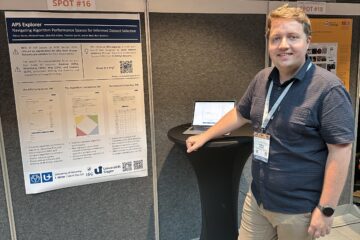We are pleased to announce that our paper, “Green Recommender Systems: Understanding and Minimizing the Carbon Footprint of AI-Powered Personalization,” has been accepted for publication in ACM Transactions on Recommender Systems (TORS). It is already available in the ACM Digital Library.
About the Paper
As recommender systems become increasingly powerful, their environmental footprint is growing as well. Our study investigates the carbon emissions generated by recommender system research and experimentation, comparing traditional algorithms such as ItemKNN with modern deep learning–based approaches.
By reproducing representative experimental pipelines from ACM RecSys 2013 and 2023, we measured the actual energy consumption of recommender system experiments using hardware-based power monitoring and translated it into CO₂ equivalents.
This work is an extended version of our reproducibility paper “From Clicks to Carbon: The Environmental Toll of Recommender Systems,” published at ACM RecSys 2024.
Key Findings
- Modern deep learning models running on GPUs produce approximately 42 times more CO₂ emissions than traditional algorithms running on CPUs.
- On average, a single deep learning–based recommender systems paper generates about 2.9 metric tonnes of CO₂, equivalent to a flight from New York to Melbourne.
- The choice of hardware and geographic location can change emissions by a factor of up to 12.
- Despite advances in hardware efficiency, the overall carbon footprint of recommender systems research has grown substantially over the past decade.
Why It Matters
Our findings highlight the importance of integrating sustainability considerations into AI and recommender systems research. As personalization technologies continue to expand across industries, understanding and reducing their energy consumption is crucial to ensure that progress in AI aligns with environmental responsibility. You can read more about this in our paper “Green Recommender Systems: A Call for Attention,” published at ACM SIGIR Forum.
Towards Green Recommender Systems
The paper also introduces guidelines and best practices for designing Green Recommender Systems: recommender systems that aim to balance algorithmic performance with sustainability by reducing energy consumption and carbon emissions throughout their life cycle.
Authors
Lukas Wegmeth1, Tobias Vente1, Alan Said2, and Joeran Beel1
1Intelligent Systems Group, University of Siegen, 2University of Gothenburg
The code and data are available on GitHub.




0 Comments